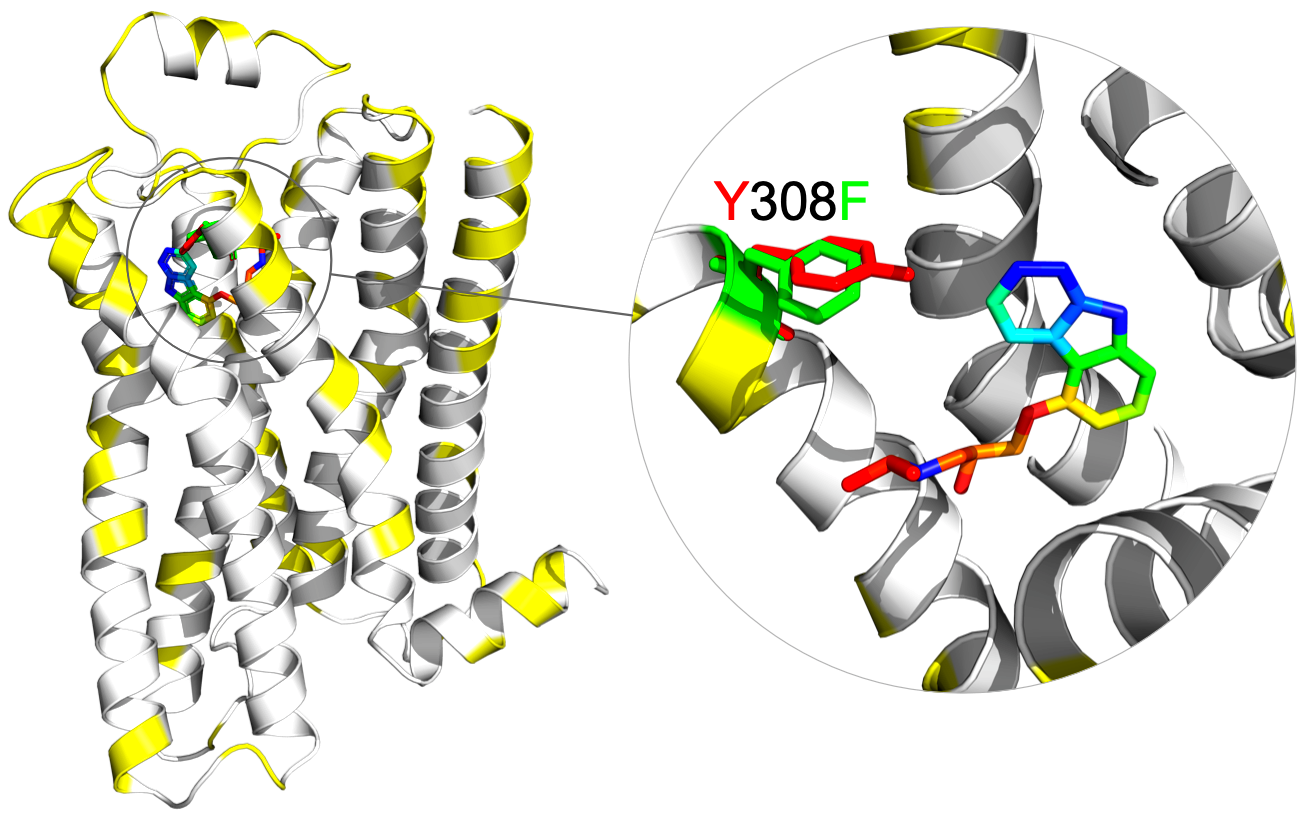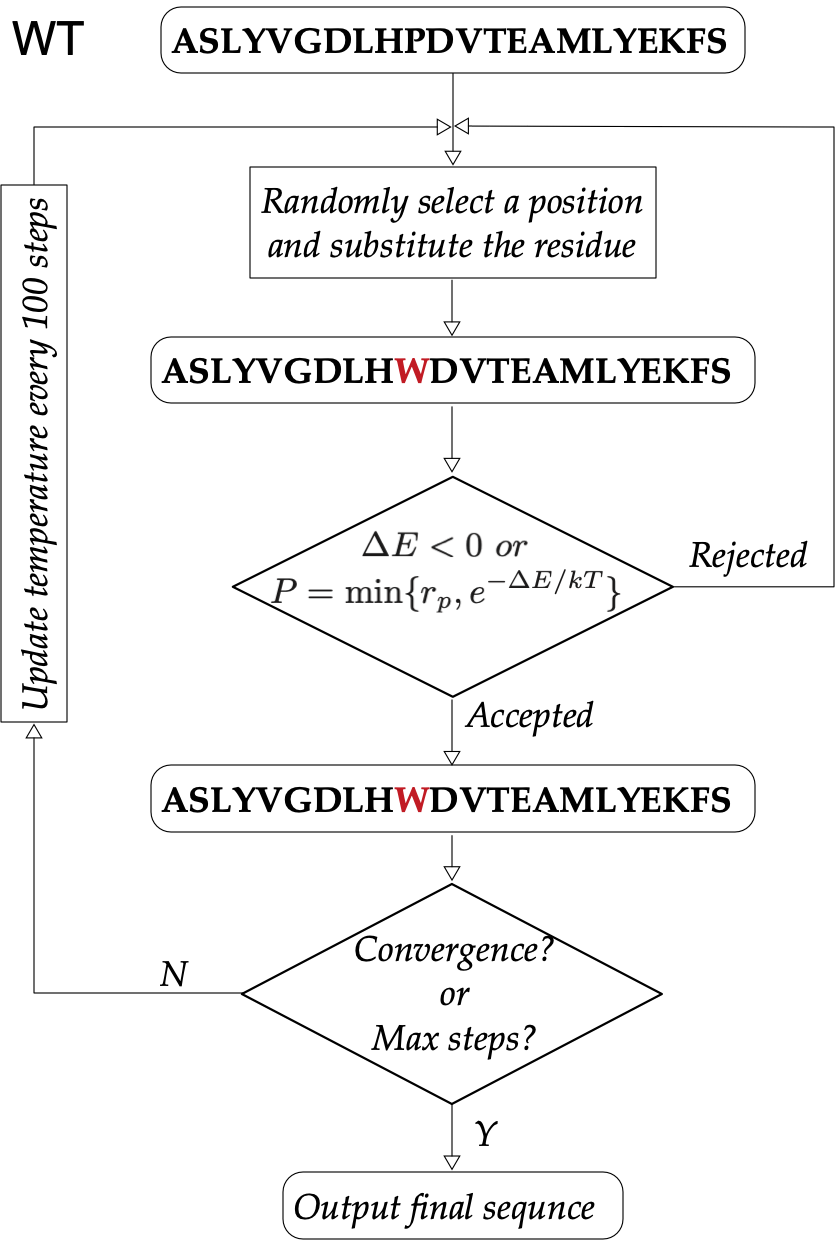Promising tool to design protein
Protein Design
To discovery drugs
-
The residue communities, as important evolutionary signatures, would pave a way to engineer protiens for drug development.

Promising tool to design protein
The residue communities, as important evolutionary signatures, would pave a way to engineer protiens for drug development.


Complete single mutagenesis. The matrix that is computed by the SAEC method shows \(\Delta E\) — the energy difference of each mutant sequence with each mutation \(\tau\) at the ith site and wild-type (WT) sequence, negative values representing favourable while positive representing unfavourable mutations.

Starting from a given WT sequence, we launch the dead-end elimination (DEE) algorithm1 to optimize the mutant sequence base on the energy-like potentials (sequence potentials) inferred from the MSA. According to the Metropolis criterion, the design protocol will accept or reject a new mutant that may occur in the WT sequence, and the change is accepted with probability as follows,
\(P=\min\{1, e^{-\Delta E/kT}\}\)
where \(\Delta E=E_{new}-E_{old}\) is the energy difference between the new and old mutant sequences, \(k\) is the Boltzmann constant, and \(T\) is the temperature.
Based on the best-so-far sequence (designed), one can conduct a signle or multiple (coupled) mutants on the WT sequence, and the energy of the mutant sequence is computed for evaluating the conbination of mutants.
© AmoAi. All rights reserved.